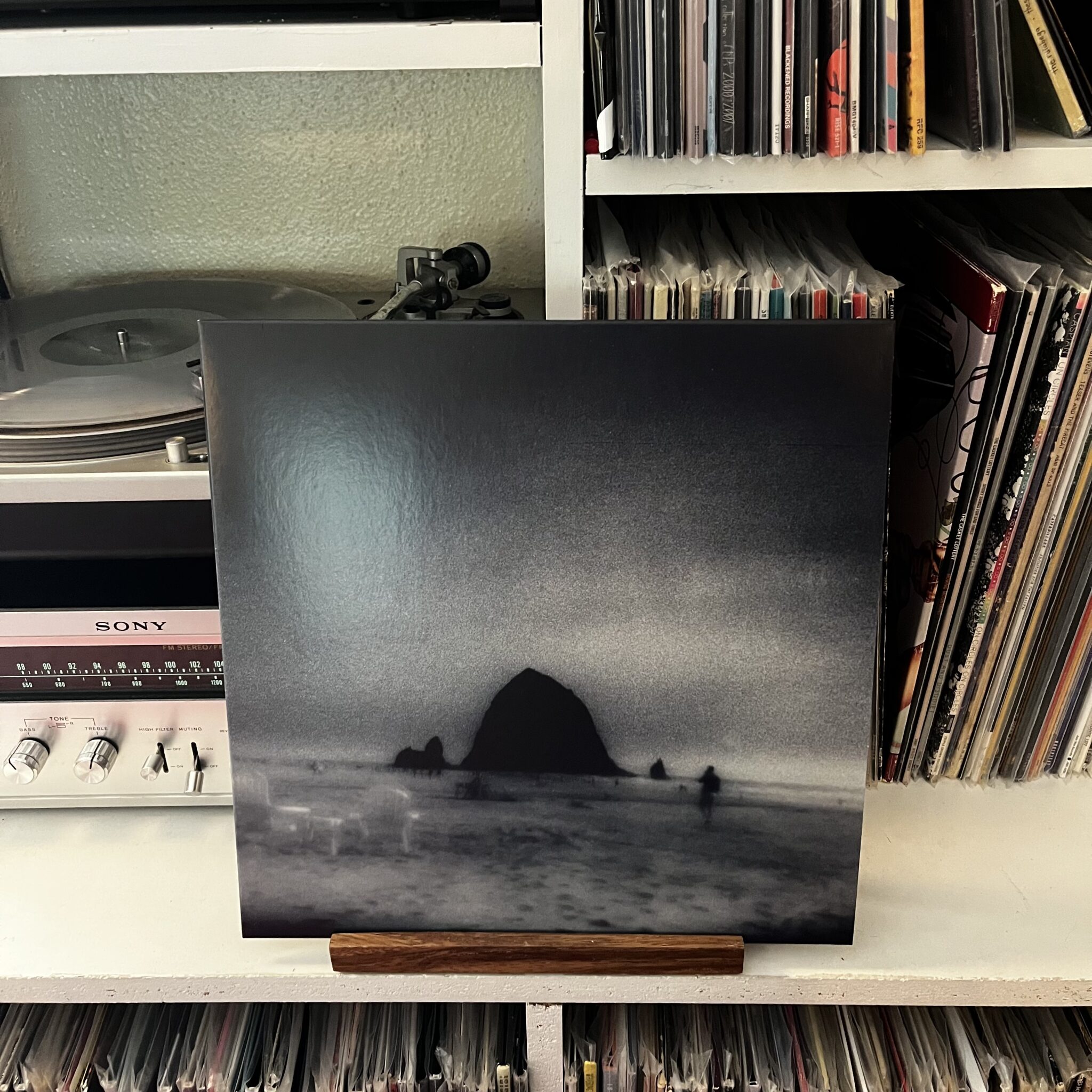 When Kyle Bates holed himself up in his Pacific Northwest apartment to record an album about isolation, grief, and personal trauma, he had no way of knowing how universal those feelings would become by its release. On the other side of lockdowns, protests, and relationships frayed by the above, Bates’ examinations are endlessly relatable—however, they still sound deeply personal, almost as if he never intended to release it.
When Kyle Bates holed himself up in his Pacific Northwest apartment to record an album about isolation, grief, and personal trauma, he had no way of knowing how universal those feelings would become by its release. On the other side of lockdowns, protests, and relationships frayed by the above, Bates’ examinations are endlessly relatable—however, they still sound deeply personal, almost as if he never intended to release it.
Author: Nathaniel FitzGerald
Record #944: The Antlers – Hospice (2009)
 Elephant in the room: this is probably the biggest hole in my collection. I’m a huge fan of The Antlers, but my saying that has usually come with the caveat that I mean what they did after this record. I’ve listened to it, of course, and it’s been on my wishlist for over a decade, but as my tastes have gotten weirder and heavier, I’ve never pulled the trigger.
Elephant in the room: this is probably the biggest hole in my collection. I’m a huge fan of The Antlers, but my saying that has usually come with the caveat that I mean what they did after this record. I’ve listened to it, of course, and it’s been on my wishlist for over a decade, but as my tastes have gotten weirder and heavier, I’ve never pulled the trigger.
But sometimes you just gotta do what you gotta do.
Record #943: Agriculture – Agriculture (2023)
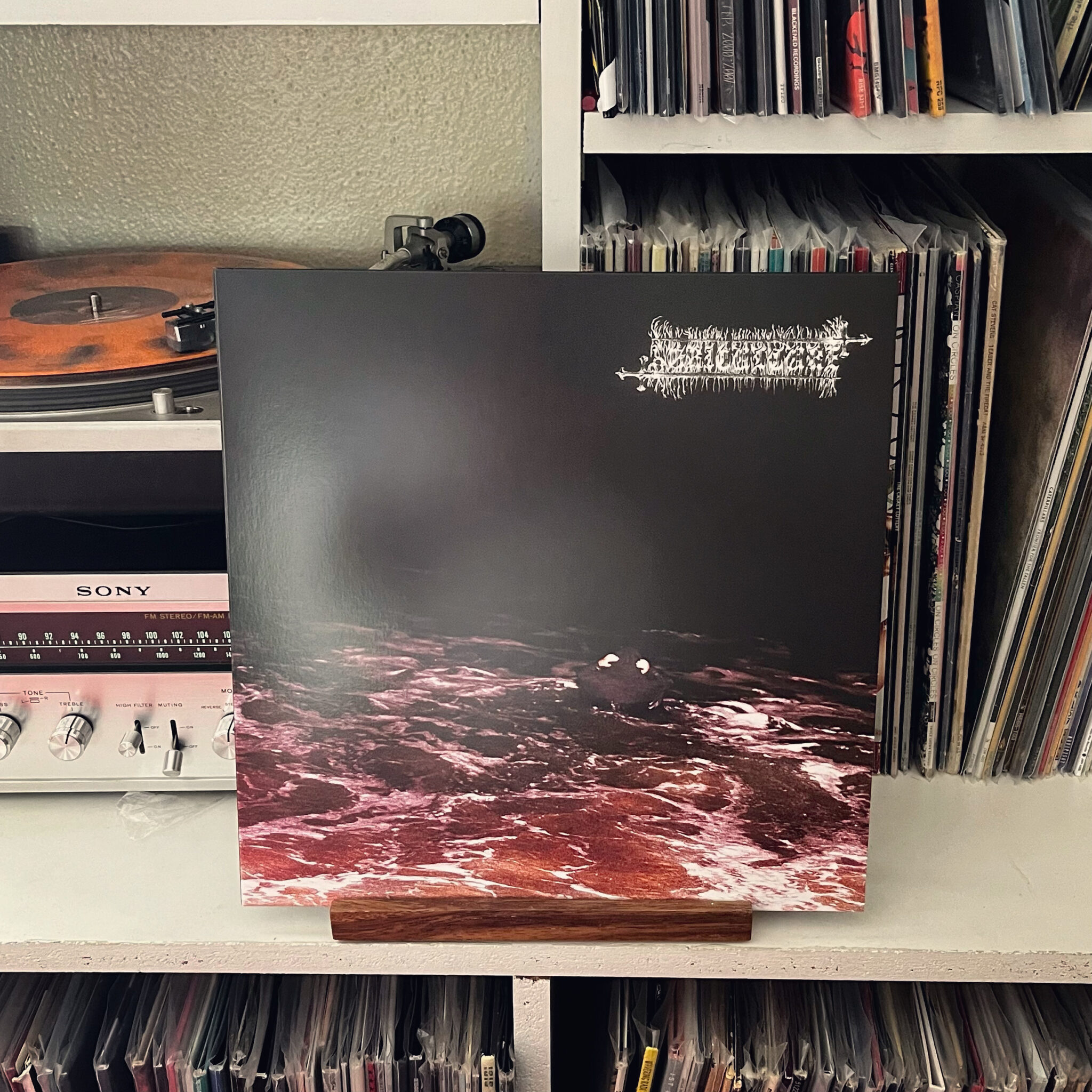 “Ecstatic black metal” seems a bit like an oxymoron. If you were to ask someone to describe black metal in one word, “ecstatic” might not come up very often. In fact, if you were to create a relevant Family Feud category, guessing it would land you a big fat X and a Steve Harvey overreaction.
“Ecstatic black metal” seems a bit like an oxymoron. If you were to ask someone to describe black metal in one word, “ecstatic” might not come up very often. In fact, if you were to create a relevant Family Feud category, guessing it would land you a big fat X and a Steve Harvey overreaction.
Yet when you listen to Agriculture’s debut full length, it makes perfect sense that they would describe themselves as such, using the white-hot sonic bombast of black metal as a vehicle for transcendence and jubilation.
Record #942: Lewis – Even So (2002)
 I’m not sure anything contributed more to my music taste than Deep Elm’s Emo Is Awesome, Emo Is Evil compilation (maybe Songs From the Penalty Box 4, but that’s a different story). Like many a Millennial youth, I grabbed a copy after seeing it next to the register at Hot Topic. I didn’t recognize a single name on the tracklist, but it introduced me to a group of bands that showed just how diverse emo could be, like Red Animal War, Planes Mistaken For Stars, Logh, Benton Falls, the Appleseed Cast (still an all time favorite), and so many more.
I’m not sure anything contributed more to my music taste than Deep Elm’s Emo Is Awesome, Emo Is Evil compilation (maybe Songs From the Penalty Box 4, but that’s a different story). Like many a Millennial youth, I grabbed a copy after seeing it next to the register at Hot Topic. I didn’t recognize a single name on the tracklist, but it introduced me to a group of bands that showed just how diverse emo could be, like Red Animal War, Planes Mistaken For Stars, Logh, Benton Falls, the Appleseed Cast (still an all time favorite), and so many more.
Lewis was on that compilation, but their contribution didn’t grab me. I mostly ignored them until I got a copy of Even So in a $1 Random CD sale the label was having. It didn’t take much convincing for that disc to join my regular listening rotation.
Record #941: Braid – Frame and Canvas (1997)
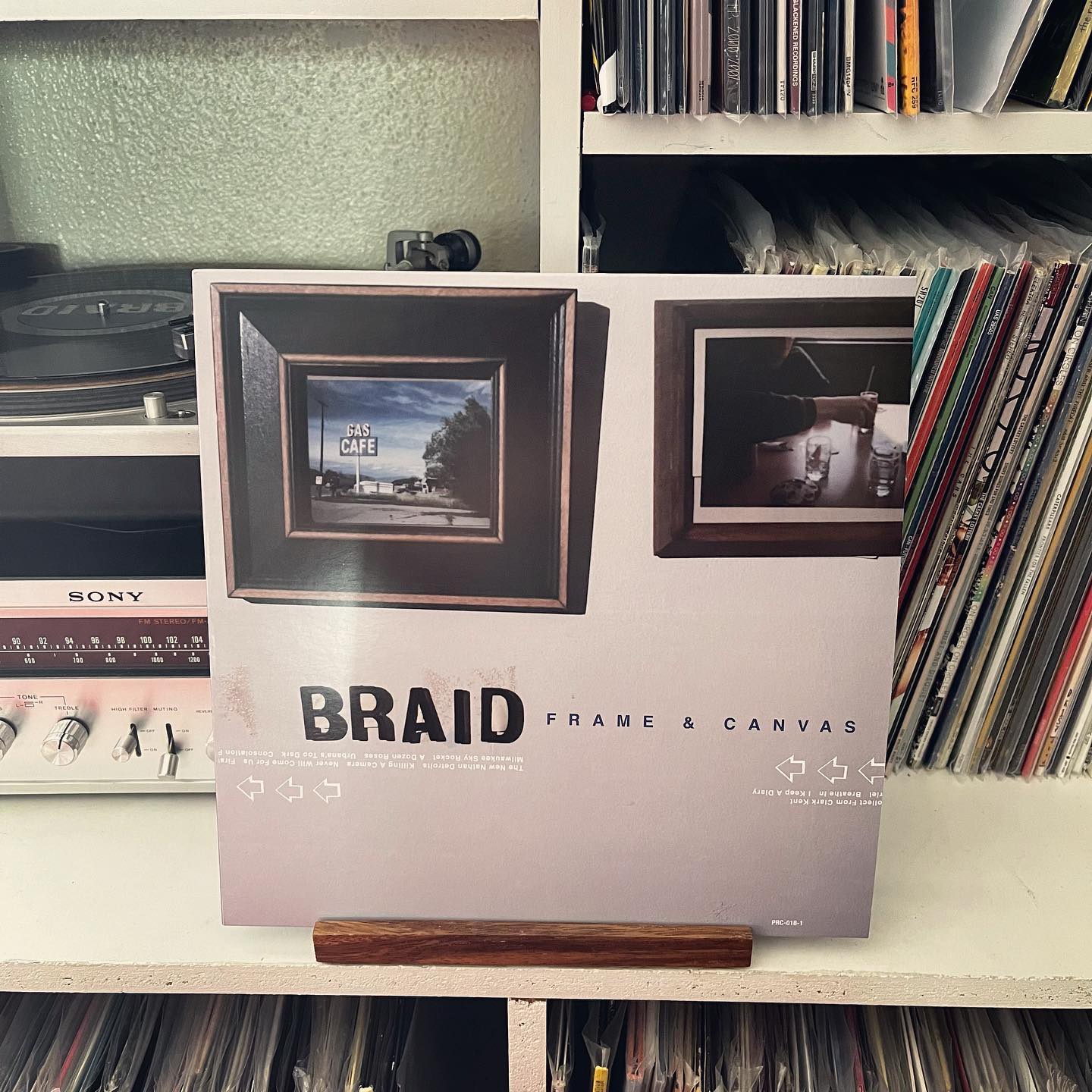
I swear, sometimes it feels like I never had an emo phase at all. Despite how fully consumed I was by that scene from ages 15 to 18, I stumble upon foundational records that I’ve totally ignored with a startling regularity.
Add another tally for my ignorance, because even though I had listened to Braid’s seminal Frame and Canvas before this decade, I was still well into my twenties when I did hear it, and it took me until this past week to realize I needed it.
And yeah. I’m kicking myself.
Record #940: IST IST – Protagonists (2023)

Let’s talk about evolution for a second. As times change, organisms must adapt. These tiny adaptations build up over eons to create totally new lifeforms.
Musically though, that happens on a much smaller scale. A Mesazoic worth of evolution might happen in a decade, with primitive genres becoming more advanced and converging to form antecedents that bear little resemblance to their forebears.
But just as some lifeforms perpetuate for millions of years without much variation, some genres were perfectly adapted from their conception. Take for instance post punk, which has swum on the last few decades like a shark: its unblinking gaze, jagged teeth, and menacing presence as fit a metaphor for the sounds of the genre as any I can think of.
Manchester post punkers IST IST understand this, offering an album that delivers a brand of icy post punk that’s as close to the scene’s origins as any I’ve heard in the last few years.
Record #939: Morella’s Forest – Super Deluxe (1995)
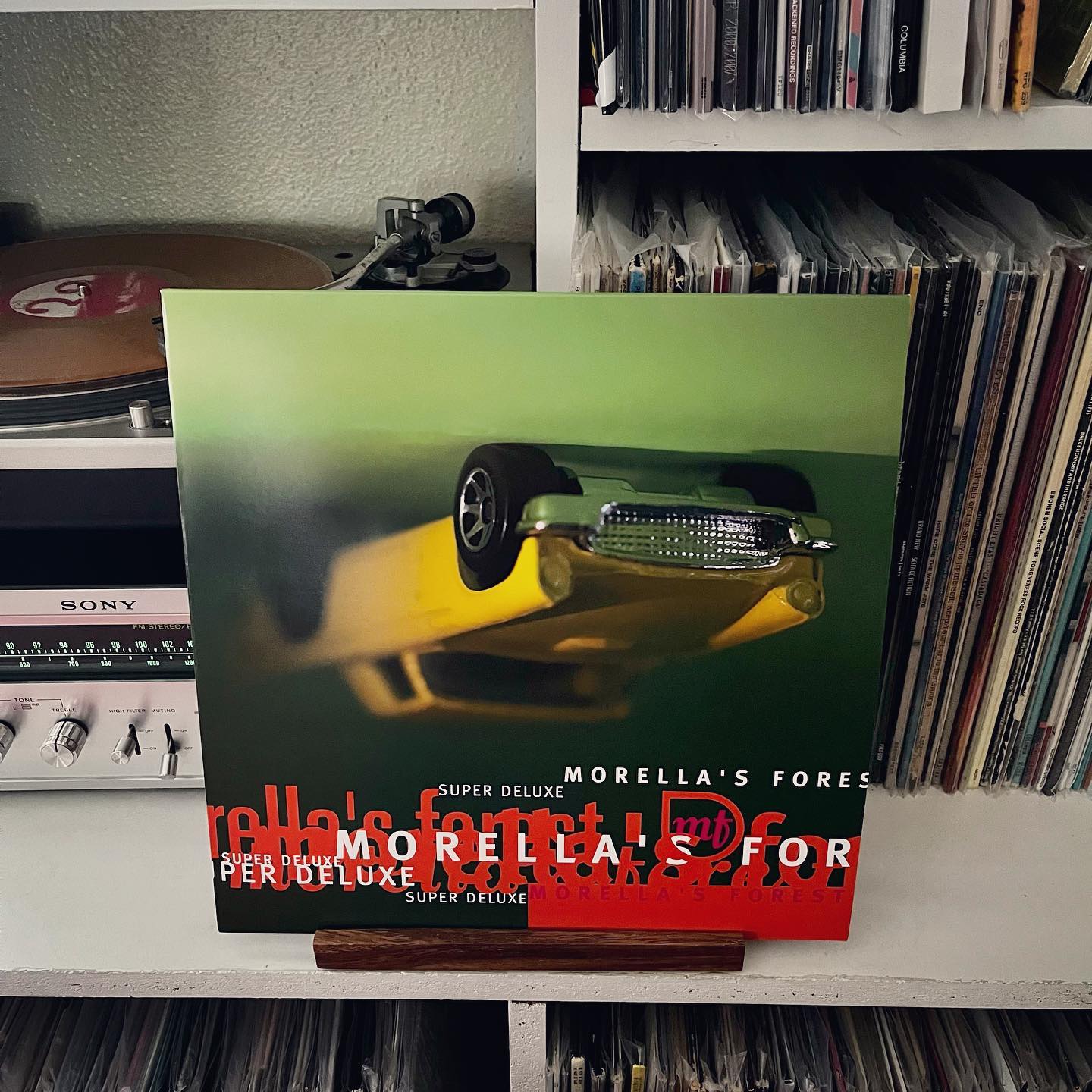
One day when I was in twelfth grade, I was driving my younger sisters around listening to music (likely mewithoutYou or Norma Jean based on the era). They asked me why I don’t listen to music with girls singing. I said, “that’s not true. I listen to this,” and put on Morella’s Forest. A few minutes in, they declared that that didn’t count.
As baffled as I was then, I now understand that they were asking more why I didn’t listen to poppier fare. And while there are plenty of pop hooks on this disc, I can forgive my sisters for being unable to hear it beneath the swirling hurricane of shoegaze guitars.
Record #938: Anchors – Adult Decisions (2019)
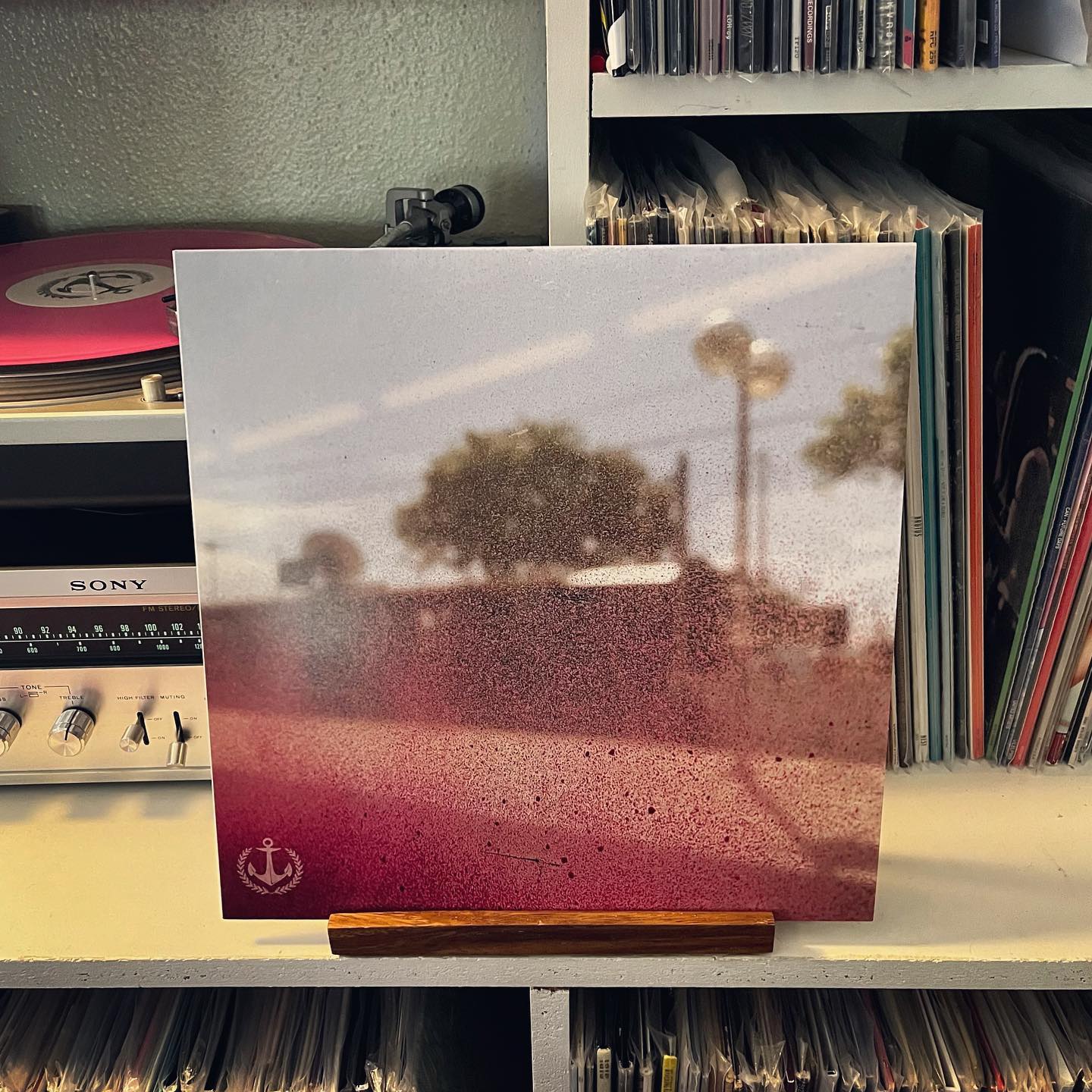
Go to local shows.
I cannot emphasize this point enough. Beneath the glimmer of mainstream music is a thriving ecosystem of artists who are just as good (or better!) than anything you might find on on the radio. And while some folks might scoff and say, “but I don’t know any of those bands!”, the discovery is the point.
A few weeks ago, my band played a show in a city we’d never been, and we were delighted by both the reception we received and the quality of the bands we played with. For the point of this post, I’ll draw special attention to Anchors, playing that night as a solo act on electric guitar. I got a copy of the album and found that while the stripped-down arrangements helped to highlight David Black’s clever songwriting, the full band versions on record don’t obscure it any.
Record #937: Conjurer – Pathós (2022)
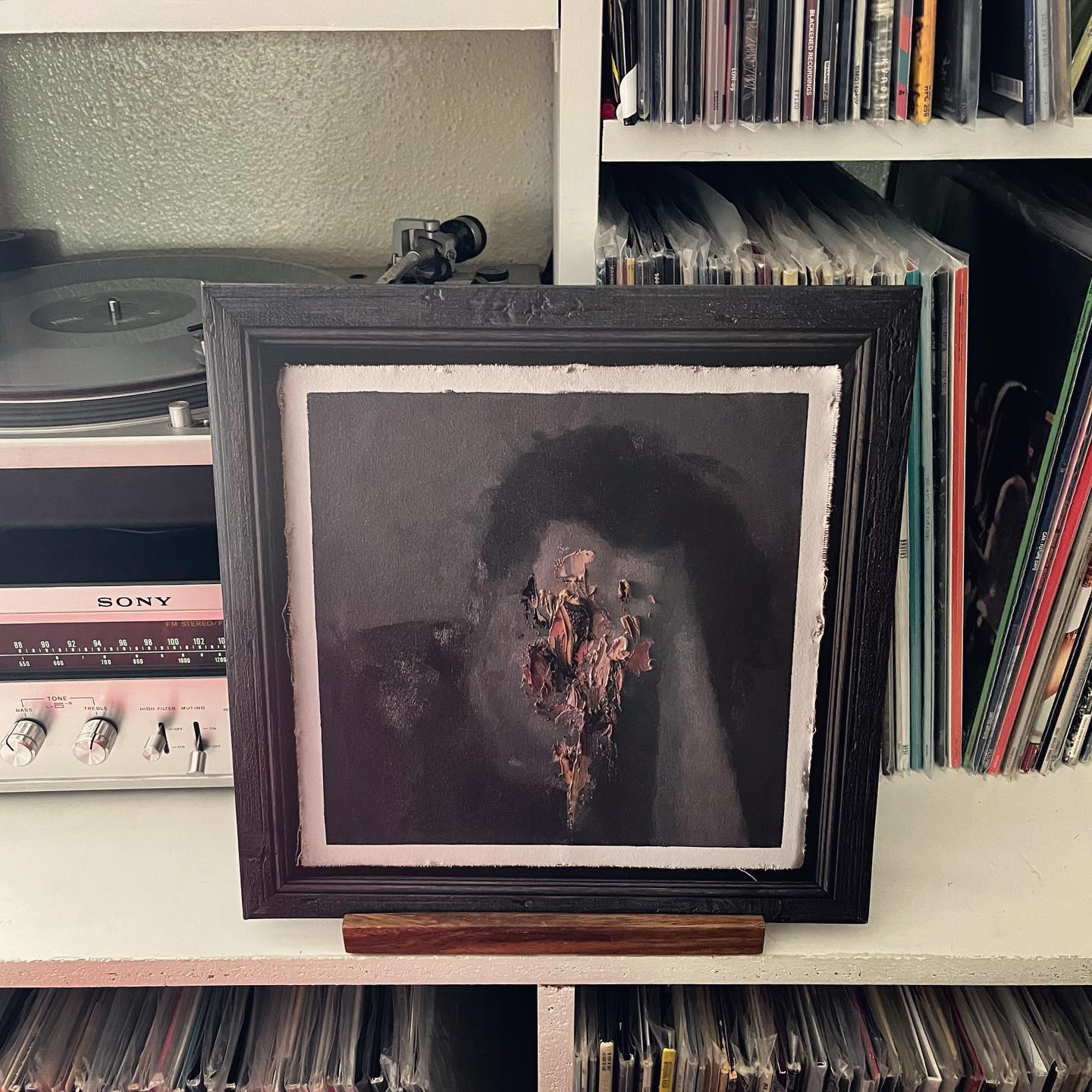 If there’s one thing the metal community loves, it’s hyperbole. There are thousands of metal records that come out a year, and they are all described with superlatives.
If there’s one thing the metal community loves, it’s hyperbole. There are thousands of metal records that come out a year, and they are all described with superlatives.
For instance, let’s look at Conjurer, who the internet has decided to call “The Saviors of British Metal.” No matter how hard you roll your eyes at that, Conjurer is rolling theirs harder. They’ve said a few times that they don’t consider themselves to be doing anything all that revolutionary.
Still, listening to Pathós, you might think that the internet hyperbolists are on to something.
Record #936: Bjork – Post (1995)
 Bjork has become kind of a punchline in recent years. And if we’re honest, both the fae princess schtick and her increasingly experimental electropop are pretty rife for parody.
Bjork has become kind of a punchline in recent years. And if we’re honest, both the fae princess schtick and her increasingly experimental electropop are pretty rife for parody.
But before the swan dresses and coy word salad interviews, we have to remember why Bjork was thrust into the spotlight in the first place—and that reason is her brilliant sophomore record Post, an album sharpened to such a bleeding edge that it still sounds modern two decades later.